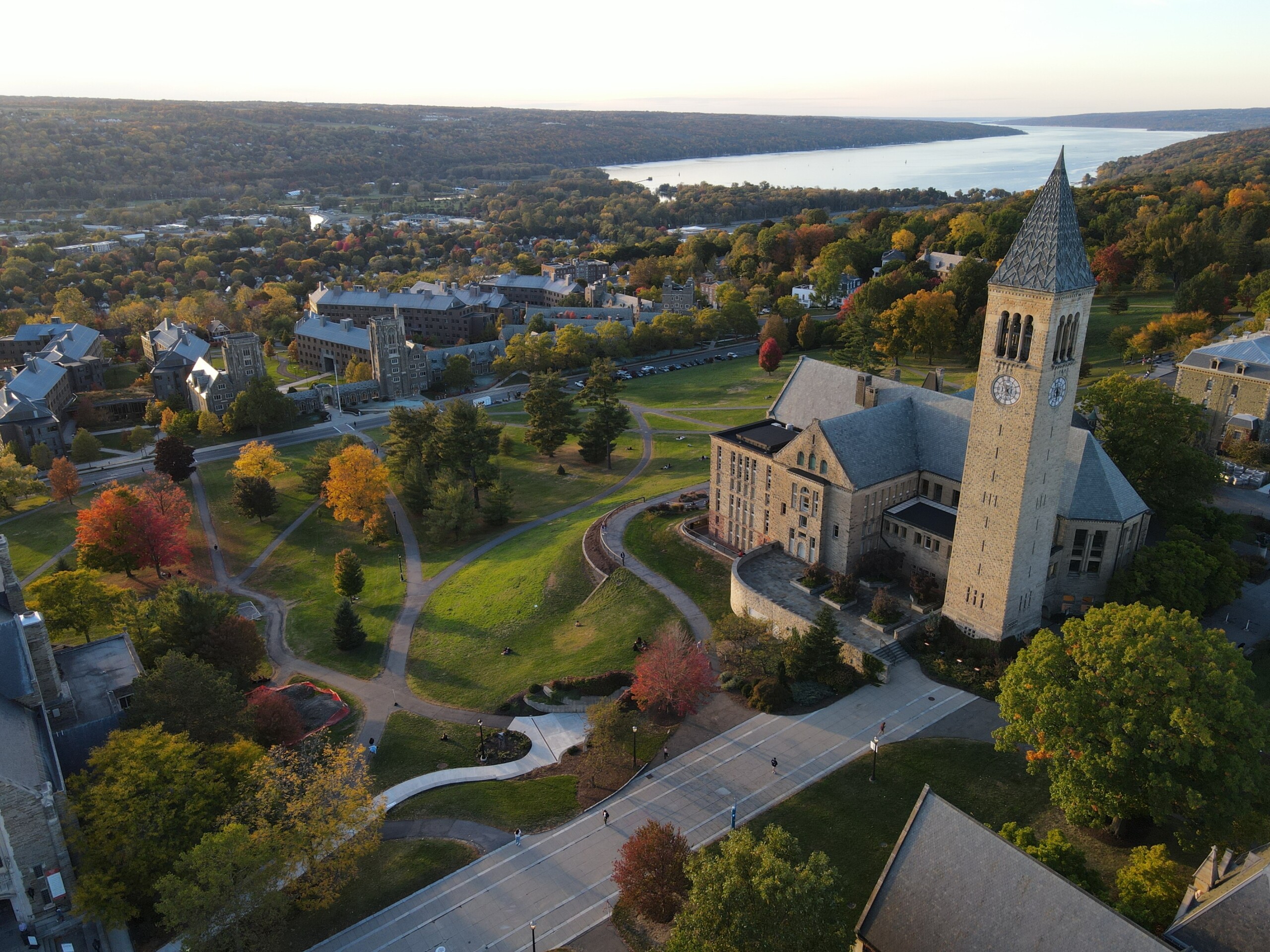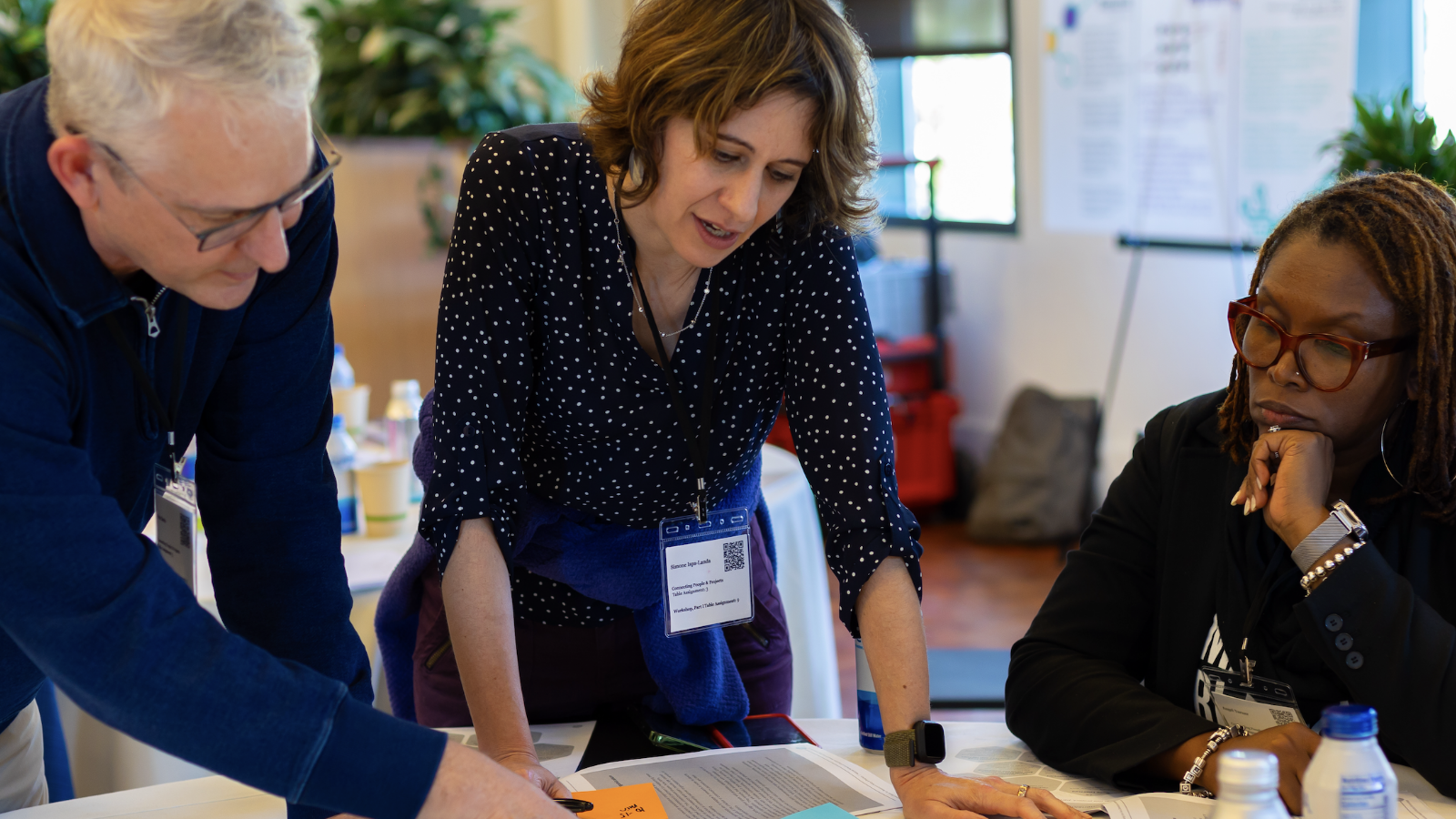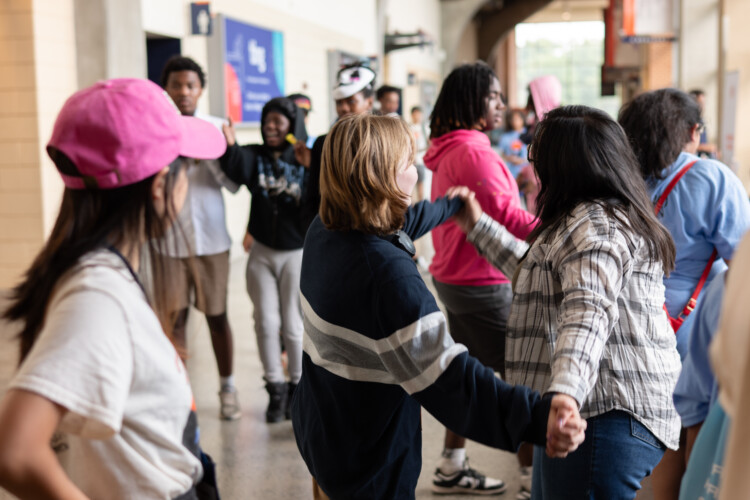The Trustees of the William T. Grant Foundation, Spencer Foundation, Doris Duke Foundation, and Bezos Family Foundation have approved $2.6 million in funding for the winners of the 2025 Institutional Challenge Grant competition.
The four research-practice partnerships selected as this year’s Institutional Challenge Grant winners are:
- Pennsylvania State University in partnership with the Office of Children, Youth, and Families in the Pennsylvania Department of Human Services to improve post-secondary outcomes for foster youth aging out of care
- Tulane University in partnership with the Center for Restorative Approaches and New Orleans Public Schools to address the disproportionate impact of gun violence on Black youth
- The University of New Mexico in partnership with the State of New Mexico First Judicial District Attorney’s Office to reduce racial and ethnic inequalities in the juvenile justice system through a deflection and diversion program
- Boston University in partnership with the Indiana Department of Education to shape educational policies to improve outcomes for students with disabilities and multi-lingual learners.
These partnerships will work together to improve post-secondary outcomes for foster youth aging out of care; address disproportionate impact of gun violence on Black youth; reduce racial and ethnic inequalities in the juvenile justice system through a deflection and diversion program; and shape educational policies to improve outcomes for students with disabilities and multi-lingual learners. Each grantee receives a three-year award of $650,000, with the opportunity to apply for continuation funding of $350,000 to further strengthen the partnership.
“As part of the program, partnerships’ research will aim to build, test, or increase understanding of programs, policies, or practices to reduce inequality in the academic, social, behavioral, or economic outcomes of young people in the United States. ”
“We are excited to support these research-practice partnerships as they work together to address youth inequality in their communities and elevate the importance of engaged scholarship at their institutions. In this turbulent moment, community engaged research can play a critical role in identifying strategies that improve the lives of young people,” said Adam Gamoran, president of the William T. Grant Foundation.
The Institutional Challenge Grant encourages university-based research institutes, schools, and centers to grow existing research-practice partnerships with public agencies or nonprofit organizations in order to reduce inequality in youth outcomes.
“The fact that the project is designed to build trusting, collaborative relationships is critical to the sustainability and the expansion of the violence interruption work. As a restorative practitioner, I see every day, the importance of relationships to change. Since systems are made of people, this is true of both interpersonal and system change. As we work together to embed healing-centered, relationship-focused, equitable approaches to violence interruption, as our partners see the evidence of the efficacy of these approaches that they worked to achieve, it is my hope that they embrace the transferability of these approaches to their systems,” said Troi Bechet, founder and CEO of the Center for Restorative Justice, which is partnering with Tulane University and New Orleans Public Schools.
“In this turbulent moment, community engaged research can play a critical role in identifying strategies that improve the lives of young people”
As part of the program, partnerships’ research will aim to build, test, or increase understanding of programs, policies, or practices to reduce inequality in the academic, social, behavioral, or economic outcomes of young people in the United States.
“With this grant, we have the opportunity to broaden our understanding of the state-level policies that shape experiences and outcomes for students with disabilities and English Learners. Building on the rigorous classroom, school and district level literature, we are excited to bring a new lens focused on interventions enacted at scale. Opening insights in this way is critical to addressing opportunity gaps that exist and would only be possible through a close partnership like the one we have between BU WEPC and IDOE,” said Marcus Winters, faculty director of the Wheelock Educational Policy Center at Boston University, which is partnering with the Indiana Department of Education.
Grantee institutions must shift their policies and incentives to value collaborative work and strengthen institutional infrastructure to reward community-engaged research. “This grant will support our work to remove barriers that make it hard for researchers to pursue community-engaged research and will help build their skills in the collaborative research process. As important, the work will guide us as an institution to effectively increase support for research practice partnerships and community-engaged research broadly. Overall, we see tremendous benefit to our faculty and students, our agency partner, and the people of Pennsylvania and beyond who will reap the benefits of this work,” said Deborah Ehrenthal, director of the Social Science Research Institute at Pennsylvania State University, which is partnering with the Office of Children, Youth, and Families in the Pennsylvania Department of Human Services.
“This is a critical moment for philanthropy to support deep collaboration between scholars and community partners working together to bring about equitable systems change.”
The partnerships must also enhance the capacity of nonprofits or public agencies to use evidence in their decision-making. “This project, and the evidence base it will build, can help the First Judicial District Attorney’s Office make a strong case for the value of youth diversion as a powerful intervention for reducing youth crime and violence while also providing key supports for at-risk youth. While the national evidence base supports this, local evidence is more compelling to policymakers and community advocates who represent our local communities. Moreover, the evidence base we build can help clarify the population of at-risk youth most likely to benefit from diversion programs and the risks and needs that facilitate their success,” said Jen Perillo and Lisa Broidy, at the University of New Mexico, and Jennifer Padgett Macias, at the State of New Mexico First Judicial District Attorney’s Office.
“We’re proud to support these efforts to deepen partnerships between universities and state or community agencies to identify research questions and understand how data will strengthen outcomes for young people,” said Jody Rosentswieg, managing director of strategic initiatives at the Bezos Family Foundation. “Universities have incredible assets to support answering those questions while fostering a next generation of scholars rooted in community impact.”
“We are excited to support these partnerships that bring together diverse knowledge and experience to drive lasting, community-led change for children and young people,” said Elizabeth Wyner, senior program officer for child well-being at the Doris Duke Foundation.
“We are pleased to support these robust research-practice partnerships designed to reduce inequality for our nation’s young people,” said Na’ilah Nasir, president of the Spencer Foundation. “This is a critical moment for philanthropy to support deep collaboration between scholars and community partners working together to bring about equitable systems change.”
###
2025 Institutional Challenge Grants:
Improving Postsecondary Educational Outcomes for Transition-Age Youth in Foster Care
Deborah Ehrenthal and Christian Connell, Pennsylvania State University; Laval S. Miller-Wilson, Pennsylvania Department of Human Services, Office of Children, Youth and Families
$650,000, 7/1/2025–6/30/2028
New Orleans Youth Equity Collaborative: A Research Practice Partnership to Reduce Youth Firearm Violence
Julia Fleckman, Tulane University; Troi Bechet, Center for Restorative Approaches; Lerone Crayton, New Orleans Public Schools
$650,000, 7/1/2025–6/30/2028
Promoting Innovative and Vital Opportunities for Transformation (PIVOT): A Prosecutor-Led Community Based Diversion Program for Youth and Young Adults to Reduce Ethno-Racial Inequality
Jennifer Perillo, University of New Mexico; Lisa Broidy, University of New Mexico; Jennifer Padgett Macias, State of New Mexico First Judicial District Attorney’s Office
$650,000, 7/1/2025–6/30/2028
Improving Outcomes for English Learners and Students with Disabilities in Indiana
Marcus Winters, Boston University; Indiana Department of Education
$650,000, 7/1/2025–6/30/2028







